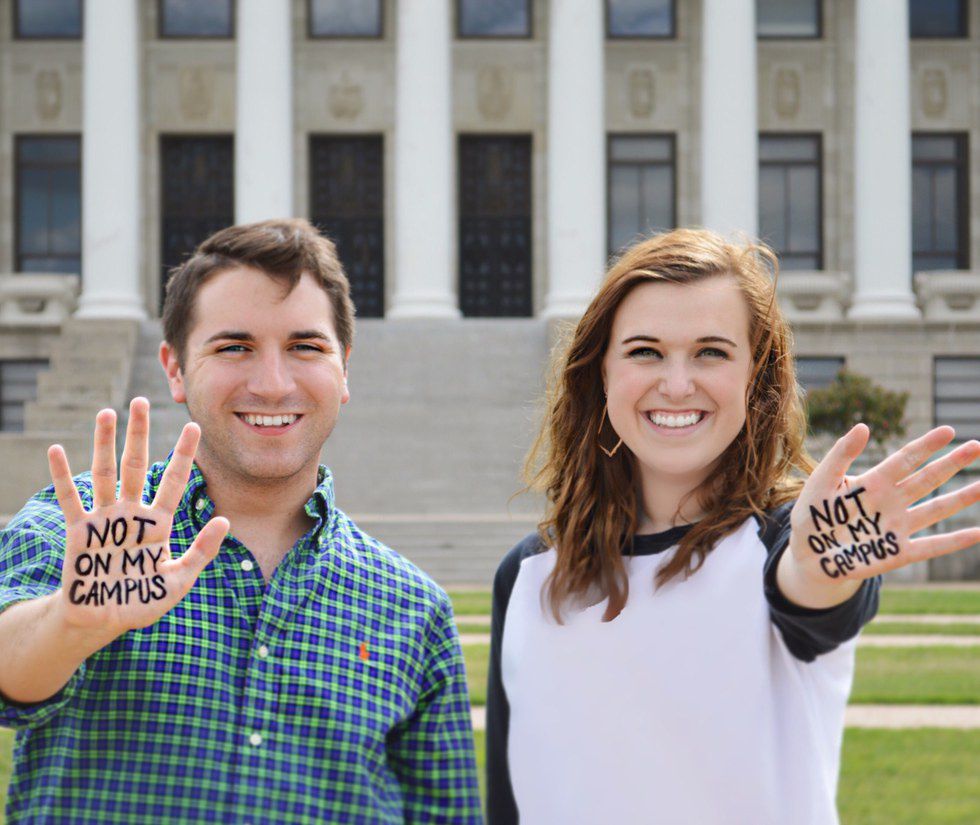sur·vi·vor
"A person who manages to live through a situation that could have killed them."
One in four women are survivors. One in eight men are survivors. Your classmate is a survivor. Your friend is a survivor. Your relative is a survivor. I am a survivor.
One in four women are victims of sexual assault and one in eight men suffer the same horror. So how can we change this? Not On My Campus is a student lead movement, by students for students, geared towards raising awareness about sexual assault on college campuses. But what is there to raise awareness about? We know to use the buddy system, carry pepper spray and don't follow that stranger into the alley... But when is the last time someone warned us about the person we trust, the person we care about and the person we believe would never hurt us?
Eighty-two percent of sexual assaults are perpetrated by someone the survivor knows. Someone you think would never hurt you. Someone you think respects you. That is what we need to talk about. That is what we need to be aware of.
After speaking with Sydney Whigam, a Texas A&M student who helped start this movement on campus, I learned about her deep passions behind it. She was inspired to stand up and make a change when she shared her own story and there was an overwhelming response of people saying they had been through the same traumatic experience. Her goal at the beginning of this movement was just to help one person, but after two days of experiencing the amazing love and support other Texas A&M students gave her, her goal shifted to not just helping one person but to creating awareness throughout the campus that sexual assault is a problem. And even though we attend Texas A&M, a place we consider safe and friendly, there are still bad people and we all need to be aware of that.
Another issue Not On My Campus wants to emphasize is the issue of victim blaming. Why is it that when a survivor makes the courageous decision to report a sexual assault the first questions asked are, "Are you sure you really said no? Were you drinking alcohol? Are you sure he heard you say no? What were you wearing?" We need to realize that nothing the survivor did or wore gave the perpetrator the right to disrespect, belittle and violate the survivor, nothing. We need to continue this movement and acknowledge that sexual assaults are a problem. We need to stop emphasizing teaching little girls to not wear certain clothing, and to travel in pairs and start emphasizing teaching boys that no means no and every girl has a right to change her mind. No is no. Intoxication is no. Silence is no. And clothing does not determine consent.
To the survivors: Please know that you're not alone. Please know that it's OK to not be OK, but it's also OK to piece your life back together again and prosper. Both options are okay because its your life, you still have your life! This person might have tried to steal that from you, but don't let them. Please know this is NOT your fault. As much as society tries to victim blame, it is not and will never be your fault. With that said, stop blaming yourself. Nothing you did, wore or any place you went justifies what happened to you. Nothing justifies what happened to you. And finally, just remember you have support. There are people here to help you and be there for you.
If you or someone you know has been sexually assaulted and you'd like support, please call the Sexual Assault Resource Center at 1(800) 656-HOPE
For more information on Not On My Campus and to learn what you can do to create a safer campus - like them on Facebook at "Not On My Campus TAMU"
*All statistics from https://rainn.org/statistics



















